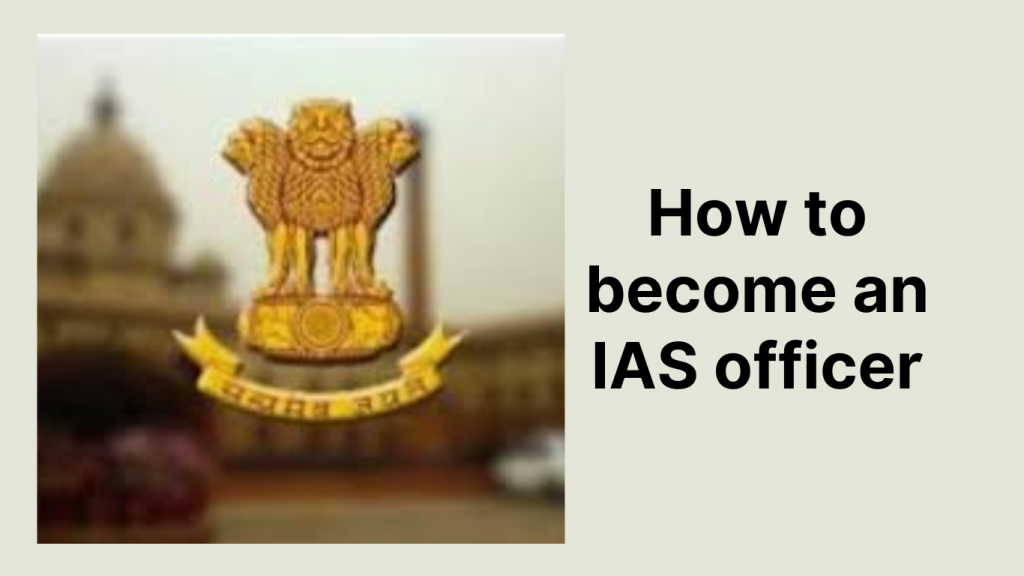Clearing an IAS aka Indian Administrative Service exam is a crucial part of a student’s life to become an IAS officer. To become an IAS officer the candidate needs to crack the Civil Service Examination (CSE) conducted by the Union Public Service Commission (UPSC). It is conducted every year. After passing the UPSC-CSE exam only an aspiring candidate can become an IAS officer.
Indian Administrative Service (IAS) has been termed as one of the prestigious and highest administrative services among the 24 government services like IPS, IFS (Foreign), IFS (Forest), IP & TAFS, IAAS, IRS, IDAS, CMSE, IRTS, IRAS, IRPS, ITS, CAPF-AF to name a few.
Required Time Span to become an IAS officer
It is one of the most difficult competitive examinations in India. A single attempt can take two complete years of preparation – one year before the prelims and one year from prelims to interview. On an average, 900,000 to 1,000,000 candidates apply every year and the number of candidates sitting in the preliminary examination is approximately 550,000. Results for the Prelims are published in mid-August, while the final result is published in May of the next year.
UPSC CSE exam takes place in three stages namely:-
- Stage I: Preliminary Examination – Held in June every year. Results are announced in August.
- Stage II: Mains Examination – Held in October every year. Results are announced in January.
- Stage III: Personality Test (interview) – Held in March. Final results are usually announced in May.
After the completion of Medical examination of the successful candidates and other necessary formalities, the training program for the selected candidates usually commences the following September.
After analyzing the IAS results, it is clear that around 180 candidates are selected in the Indian Administrative Services every year. However, despite the increasing or decreasing number of vacancies of other services, only 180 IAS officers are recruited every year.
Eligibility Criteria for UPSC Exam
Age Limit
The minimum age limit to appear in UPSC exam for all category is 21 years. The maximum age limit to appear in UPSC exam for general category is 32 years, for OBC category 35 years, for SC/ST category 37 years.
Education Qualification
All candidates must have as a minimum one of the following educational qualifications:
- Candidate with graduation
- Candidates who have taken correspondence education
- Candidate appearing for the final year of graduation
- Candidates who have passed the MBBS degree but undergoing an internship program.
Number of Attempts
The number of times a candidate can appear for the exam are given below:
- General category candidates – 6
- OBC category candidates – 9
- SC/ST candidates – unlimited attempts till 37 years of age.
Appearing to attempt one of the papers in the preliminary exam is counted as an attempt.
In addition disqualification/ cancellation of candidature is also considered as an attempt. However, applying to sit the exam but failing to attend is not counted as an attempt.
Salary of IAS officer
Salary During Training Period
IAS officers get a stipend/salary during their training at the LBSNAA. LBSNAA stands for Lal Bahadur Shastri National Academy of Administration.
During the training period at the Academy, they get paid around Rs. 55,000/-. This is further reduced due to the expenses like mess bills, payments for LBSNAA apparels and uniforms, and other activities. After deducting all the expenditures, IAS trainee salary is around Rs. 40,000 per month.
Salary After Training period
The salaries of all IAS officers start at the same level and then increase with their tenure and promotions. The entry level(starting salary) basic salary of IAS officer is 56100 per month as per 7th Pay Commission. In addition to the salary, an IAS officer is also given several other allowances, including Travel Allowance(TA), House Rent Allowance(HRA) and Dearness Allowance(DA). The max basic per month salary of an IAS officer can go on to reach Rs. 2,50,000 for a Cabinet Secretary.
Powers and Duties
An IAS officer as a civil servant, in his area, responsible for general administration as well as law and order.
At district level, work of an IAS officer is to handle district affairs. He handles all issues related electricity, water, hospitals and schools, etc and implement development schemes.
While directing disaster relief operations, IAS officers has right to take decision as per the situation.
The IAS officer implement the government policies and supervise them.
IAS officer can become District Collector. IAS officer can become head of PSU, in charge of policy formulation or head of departments like finance, agriculture, etc.
District officer post, is highly prestigious post among all. District officer post, could be district collector, district magistrate or deputy commissioner.
Apart from this IAS officer can call the head of hospitals, electricity department, water supply department, land resource department, agriculture department under the district at any time and ask for answers and decide their responsibility. If they found any mess with work then they can take strict action. IAS officers are powerful enough, to stop construction work from their area. Therefore contractor never mess up with them.
Other than this there are 300 law which defines IAS officer power.
How to apply online for UPSC exam
- Visit the official site of UPSC – www.upsc.gov.in
- Go to ”Apply Online” tab.
- Click on ”Online Application for Various Examinations”
- Find the Civil Services (Preliminary) Examination
- Start IAS registration with Part-I.
- Fill-up the personal details, educational qualification and address.
- Pay the prescribed application fee (Rs 100)
- Choose the exam centre
- Upload the photo, sign and photo identity card.
- Accept the declaration.
- Check the complete details and submit.
- Take a printout of IAS application form for future reference.
This was all about how to become an IAS officer. I have covered almost points. I hope this will help you to increase your knowledge. I wish you all the best for your better future. If you have any querries don’t hesitate to comment in the comment box.
Best of Luck for your FUTURE!


